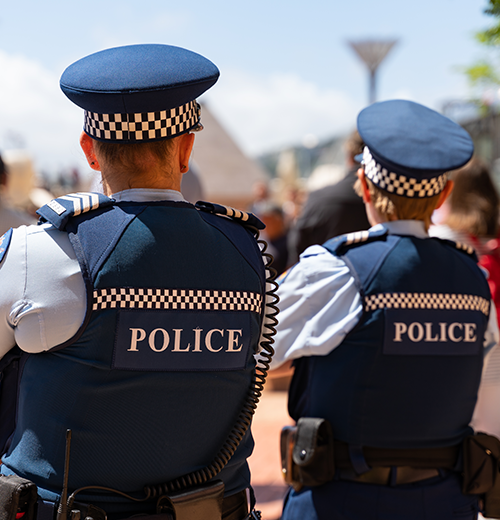August 2024
MTA's 10 Point Plan Against Crime
Based on our knowledge of the service station sector, the significant impact of retail crime and research here and overseas, MTA has developed 10 progressive action points for Government and agencies to address crime against service stations and other retailers.
1. Change current approach
All service stations are victims or potential targets of crime, but the current New Zealand Police approach disproportionately places the onus on businesses to protect themselves – for example, switching to pre-pay pumps or closing the shop on site at an early hour; a measure that would not be asked of other retailers and which inconveniences the public.
We ask Government to recognise that this approach is unsupportive and unsympathetic and must be reconsidered. The retail store is an important revenue stream for many independent fuel businesses and protective measures should not impact on their livelihood or restrict the public’s ability to buy goods.
2. Develop a Retail Crime Action Strategy
Government must develop a new over-arching and comprehensive Retail Crime Action Strategy with New Zealand Police and other applicable agencies, which would:
- Formalise the principle and expectation that Police give high priority to retail crime
- Require all CCTV and other images of offenders to be checked against database as standard practice and followed up
- Commit police to respond to all complaints in a timely manner and are resourced sufficiently to do so
- Make assaulting any person serving the public an aggravating factor at sentencing
- Learn from overseas action and experience (see the UK‘s Fighting retail crime: more action Policy Paper) and liaise with relevant agencies.
3. Extend the Police Community Beat Patrols
Extend the Police Community Beat Patrols initiative to include ‘Hot Spot’ motorised night-time patrolling of service stations, particularly in high-risk areas, as carried out effectively in Auckland in March 2024. Evidence supports this visible approach as both a deterrent and containment: in a 2023-4 UK pilot, 100,000 hours of patrols resulted in nearly 800 arrests. 1
4. Disqualify certain offenders from a remorse discount
Offenders often receive a discount for remorse at sentencing. Yet these same offenders seek notoriety and boast of their offending by sharing video of their criminal activity on social media, which encourages copycat crime. Sharing on social media of video taken by an offender while committing retail crime should disqualify them from a discount for remorse.
5. Technology fund
Technology has a role to play in preventing and solving crime. The adoption of technology must be encouraged by creating a new funding mechanism to support eligible service stations to install measures such as body cameras and facial recognition technology, on a similar basis to the fog cannon subsidy. Government should consider public-private partnership/s to do so.
6. Affordable insurance
Repeated occurrences of violent crime have a significant impact on insurance costs. Insurance companies must be required to maintain premiums and excesses at reasonable and not punitive levels and do not cancel cover because of crime against an innocent party.
7. Rebate on stolen fuel tax
Tax on fuel is intended to be paid by the consumer, as the road user. Drive off fuel theft means the retailer must unfairly bear the cost of the tax as the ability to pass it on to the consumer is removed. Government should investigate the viability of enabling retailers to claim a rebate on relevant taxes on stolen fuel.
8. Security costs
Protective security is essential but can be expensive to install. Government must allow capital expenditure for crime preventative or protective measures to be 100% tax deductible in the year in which the cost is incurred, rather than spread. The engagement of security staff should be considered within scope.
9. Update trespass laws
Trespass is often a toothless law against repeat offenders. The effectiveness of current trespass law should be evaluated, and police prioritise and respond to every trespass order in a timely manner.
10. Data sharing
The sharing of information between agencies must be comprehensive and streamlined. Having accurate and reliable data on the nature and extent of the problem is fundamental to identifying solutions.
If the supply of ‘motivated’ offenders is to be reduced, the underlying causes of retail crime must be addressed. This necessitates comprehensive prevention strategies operating within a medium to long term framework. Right now, however, service stations, their staff and the public need protection and reassurance.
MTA is willing to work with all parties, within and outside Government, on strategies and actions to reduce retail crime and keep people safe.
1 Fighting Retail Crime: more action Policy Paper, April 10, 2024

